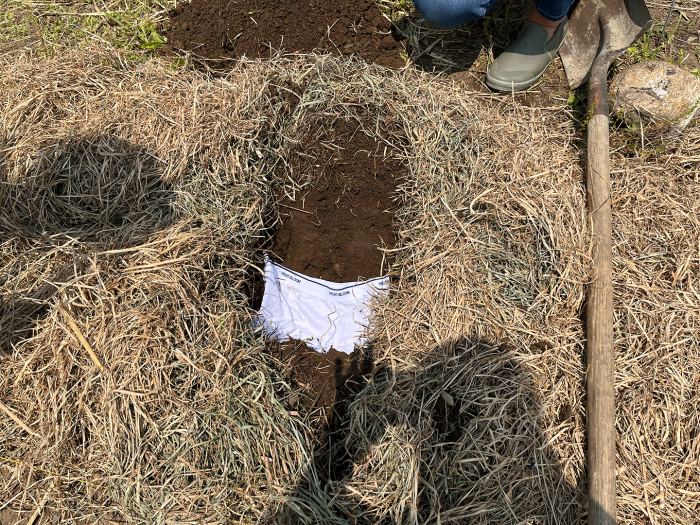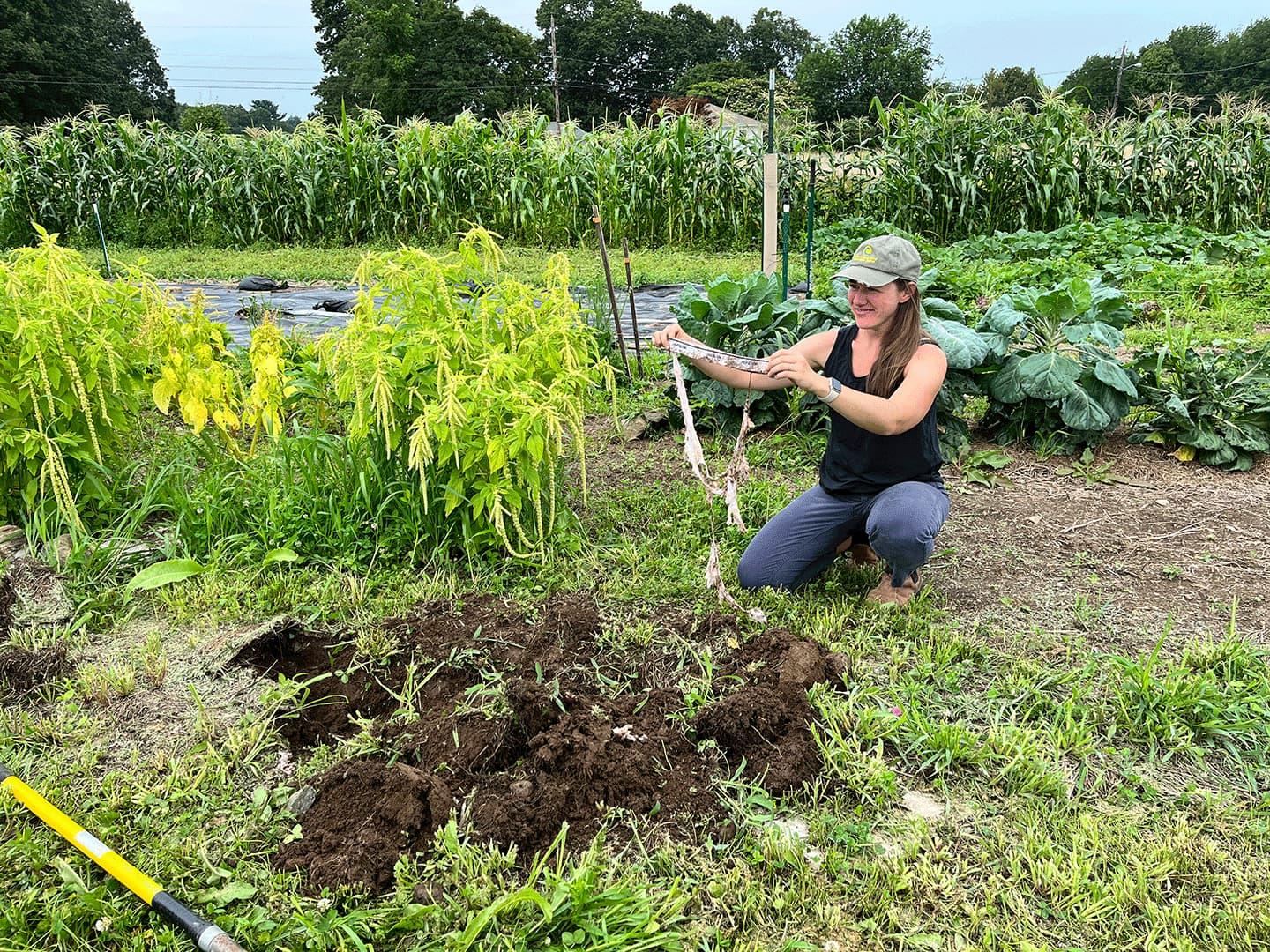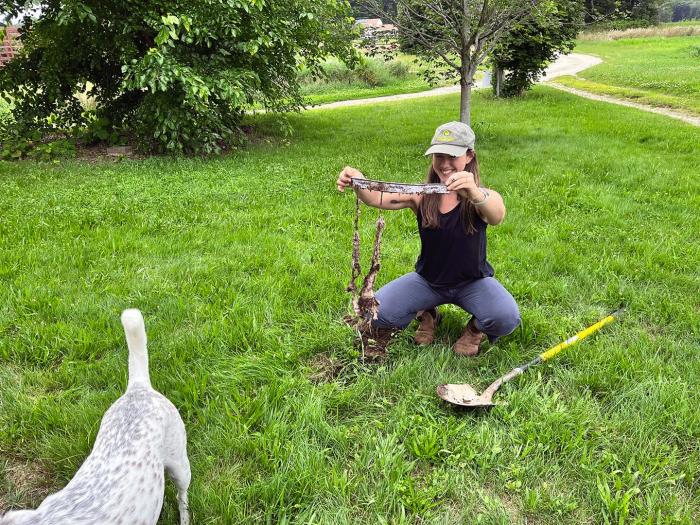
Have you ever wondered how healthy your soil is? Take the Soil Your Undies Challenge and find out!

How does it work?
Just bury a pair of cotton underwear around May-June and dig it back up after at least 60 days. It’s the quick and dirty way to test the microbial activity in your soil. The more the underwear is deteriorated, the healthier your soil!
What are the steps?

Whether you're on crop, pasture or forestland, the quick and dirty way to test your soil health is by "planting" a pair of new, 100% cotton underwear in the site you're curious about.
- Plant a pair of new, cotton underwear. Start in May-June since the temperature of the soil is warm enough that the microbes wake up. If you wait too long and the soil isn't irrigated, it can get too dry and not much happens.
- Wait at least 60 days. This gives your soil microbes time to do their magic!
- Share your results by sending a “planting” (before) photo and a “harvest” (after) photo along with your location and a little info about your operation (e.g., farm, pasture, garden, high tunnel) to: NRCSInfo@ri.usda.gov.
We'll put your undies on the map, literally! Submissions will be included on our Soil Your Undies Challenge Tracker so you can show your neighbors and other producers just how healthy your soil is. We’ll also post your results on our NRCS Rhode Island Twitter!

Microbial Action!
Your undies won't break down in just any soil. Healthy soil contains billions of microbes that consume the cotton. In fact, one teaspoon of healthy soil contains more microbes than there are people on the planet. In addition to chowing down on organic matter like cotton, microbes also help soil resist erosion, cycle nutrients, and store water.
Soil microbes are your best friends. The hungry microbes in your soil need food, shelter, and variety in order to thrive, just like us!
You can take care of your microbial friends by following these four steps:
- Avoid soil disturbance wherever and whenever possible.
- Maximize soil cover with living plants and residue.
- Maximize biodiversity by growing a variety of plants and managed integration of livestock.
- Maximize living roots in the soil throughout the year.

Some tips!
- To plant the undies, use your shovel or spade to slice into the soil about a foot deep. Bend the shovel enough to place the briefs in the space and straighten them out from top to bottom - no one likes bunched undies. This minimizes soil disturbance of the test.
- When finished planting, elastic waistband is above ground.
- If it is dry when you bury the briefs, add water to the sites. Use non-treated water (chlorine and other chemicals are designed to kill microbes).
- Compare briefs buried in different land uses like cropland, pastureland, gardens, hayland, and forested lands. Compare briefs buried in the same land uses under different management systems, like fields with and without cover crops, with and without spreading manure, with and without no-till seeding history, with and without earth worms.
Good luck and happy planting!
Eastern RI Conservation District Soil Your Undies Challenge at the Ag Innovation Farm in Portsmouth (Summer 2024)
Northern RI Conservation District Soil Your Undies Challenge at the Snake Den Farm in Johnston (Summer 2023).
Contact
Learn more about Soil Health
Soil Health Education and Outreach
Lesson plans, educator guides, soil quality test kits, soil health posters, and other educational resources about soil health.
Learn More
